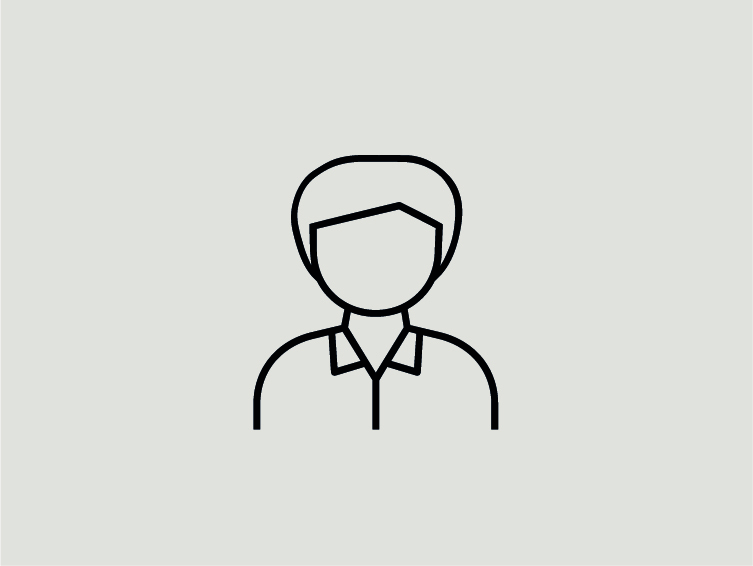Microbiology & Hygiene

Microbiology diagnostics
Under the specialist management of the Institute of Microbiology and Infection Immunology at Charité – Universitätsmedizin Berlin, the largest clinical microbiology hospital laboratory in Europe has been created following the merger of the diagnostic laboratories of the two large Berlin hospital associations, Charité-Universitätsmedizin Berlin and Vivantes – Netzwerk für Gesundheit GmbH. The Microbiology & Hygiene department supplies the majority of Berlin’s hospitals. By using the latest and most innovative methods for the detection and characterization of infectious agents, the department’s employees make a major contribution to the successful treatment and prevention of infectious diseases.
Global mobility and the widespread use of antibiotics in both human and veterinary medicine have led to a worrying increase in antibiotic resistance. With an increasing number of infections with multi-resistant pathogens, the treatment options are limited to a relatively small spectrum of antibiotics that are still effective, and in individual cases there are no longer any effective substances available. The increasing age of patients treated in hospital and the high proportion of seriously ill and immunocompromised people in the hospitals we care for also lead to an increasing risk of hospital-acquired infections. These developments place particular demands on microbiological diagnostics, on the doctors working in the field and on scientific and technical staff.
Our broad and modern diagnostics and close cooperation with the treating physicians help us to achieve the most effective, focused and rapid treatment of infections. The classical methods of culture-based microbiology, the mass spectrometric differentiation of bacteria and fungi, protein-chemical methods for the detection of antibodies and microbial antigens and, increasingly, molecular biological methods for the detection of microbial DNA are used. Thanks to its broad positioning, the Microbiology & Hygiene department has become a partner for testing and developing new methods for market-leading companies in the diagnostics industry.
Another particularly important focus is on the training and further education of our medical, scientific and technical staff. Due to the high number of samples, the density of complex cases and the relative frequency of even rare infectious pathogens, we have been able to build up a wealth of experience that we are constantly passing on to our younger employees. We are convinced that supporting young employees is the basis for the further development of the Department of Microbiology & Hygiene and for the creation of sustainable innovation.
Diagnostic
-
Direct detection of bacteria:
- Sequencing
- Microscopy, fluorescence microscopy
Cultivation of bacteria:
- from blood in automated incubation systems
- from other materials on solid and liquid cultures
Differentiation of cultivated bacteria:
- MALDI-TOF
- Metabolic profile (“colorful series”) in Vitek 2
- Sequencing
Resistance testing of cultivated bacteria:
- derived MIC measurement using Vitek 2
- MIC measurement using microdilution plates
- Microdilution gradient strips (E-tests)
- Agar diffusion tests
All methods are IVD-certified. Resistance tests are interpreted in accordance with the current EUCAST (European Committee on Antimicrobial Susceptibility Testing) standard.
-
Direct detection of yeast and filamentous fungi:
- Sequencing
- Microscopy, fluorescence microscopy
Cultivation of yeast and filamentous fungi:
- from blood in automated incubation systems
- from other materials on solid and liquid cultures
Differentiation of cultivated mushrooms:
- MALDI-TOF
- “Colorful series” by means of Vitek 2
- Sequencing
Resistance testing of cultivated fungi:
- Derived MIC measurement using Vitek 2
- MIC measurement using microdilution plates
- Microdilution gradient strips (E-tests)
- Agar diffusion tests
All methods are IVD-certified. Resistance tests are interpreted in accordance with the current EUCAST (European Committee on Antimicrobial Susceptibility Testing) standard where available.
-
Direct detection of Mycobacterium tuberculosis complex and non-tuberculous mycobacteria:
- PCR
- Microscopy (Kinyoun and Auramine)
Cultivation of mycobacteria:
- from blood in an automated incubation system
- from other materials on solid and liquid cultures (2 solid media and 1 liquid medium)
Differentiation of cultured mycobacteria:
- PCR and DNA hybridization
- Sequencing
Resistance testing of cultivated mycobacteria:
- Phenotypic (MGIT)
- Genotyped using PCR and hybridization
All methods are IVD-certified. Resistance tests are interpreted in accordance with the current EUCAST (European Committee on Antimicrobial Susceptibility Testing) standard.
-
In serological diagnostics at Labor Berlin, antigens and antibodies are analyzed using
- Enzymimmunassy,
- Immunofluorescence test,
- Immunoblot,
- Hemagglutination inhibition test and
- Neutralization test
detected.
The response times are specified for each test in the service specifications. All assays that provide a quantitative result are checked in accordance with the guidelines of the German Medical Association for Quality Assurance (RILIBÄK).
Please note that a serum-cerebrospinal fluid pair (sample collection with a maximum difference of 2 hours) is always required for the determination of intrathecal antibodies.
Preanalytical notes
Please note that a serum-cerebrospinal fluid pair (sample collection with a maximum difference of 2 hours) is always required for the determination of intrathecal antibodies.
-
Molecular diagnostics involves the qualitative or quantitative detection of pathogen-specific nucleic acids and their analysis using
- Real-time PCR possibly in combination with reverse transcriptase reaction
- Real-time multiplex PCR
- PCR in combination with Sanger sequencing
- PCR in combination with hybridization
Only accredited test methods are used.
Specific information on the individual PCR assays can be found in the list of services.
Please also note the information on preanalytics. Due to the high sensitivity of PCR methods, contamination-free collection of the sample material and compliance with storage and transportation conditions are essential for reliable diagnostics.
Requisition slips and downloads
Services for private patients, self-paying patients or elective laboratory services will be invoiced by LABOR BERLIN directly to the respective payer, unless otherwise agreed with the sender. For this purpose, the sender shall forward the necessary patient data to LABOR BERLIN and ensure that the patients are informed about the possible forwarding of laboratory orders to LABOR BERLIN and the associated organizational measures, including billing by a private medical clearing office, in the manner prescribed by law and consent to this. The legal requirements with regard to the free choice of doctor are taken into account. We would like to point out that, in accordance with the provisions of the German Hospital Remuneration Act (KHEntgG), external elective laboratory services must be ordered by the sender on a case-by-case basis and specifically by the elective physicians concerned.



